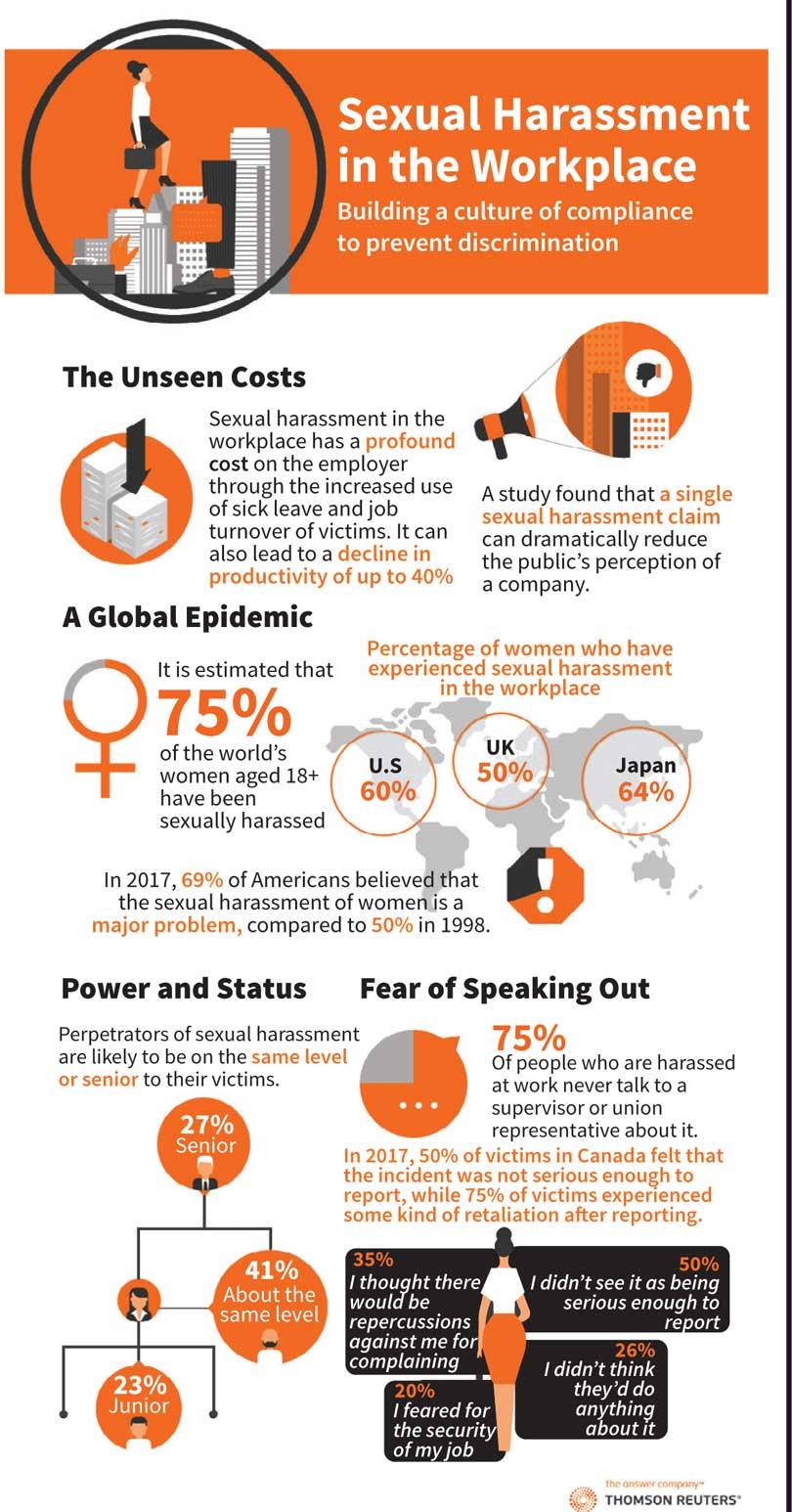06 Mar 2020 - {{hitsCtrl.values.hits}}
 Despite an increased public discussion regarding violence against women in Sri Lanka, awareness about various forms of sexual harassment, especially among women, is not adequate.
Despite an increased public discussion regarding violence against women in Sri Lanka, awareness about various forms of sexual harassment, especially among women, is not adequate.
Many men and even women think that sexual harassment means more severe and aggressive behaviour of a sexual nature, such as a violent or physical activity.
Unwelcome physical contact, words or comments of a sexual nature that makes another person uncomfortable, crass jokes, obscene gestures, sharing pornographic material, demanding or requesting sexual favours, circulation of obscene emails, visuals, text messages and any other unwelcome physical, verbal or non-verbal conduct of sexual nature can constitute sexual harassment at workplace.
Largely due to a lack of awareness on what constitutes sexual harassment at the workplace, many are ignorant of whether they have already been victims of this crime.
Not only the victim but also the perpetrators typically aren’t aware that the everyday insensitive jokes and sexual remarks they pass in the presence of colleagues which they thought as complimentary, ‘normal’ or even flattering are forms of sexual harassment.
The issue is also not limited to one or certain fields. It happens in almost all the sectors including medical, law, education and mass media.
In an ideal society, whenever a person has experienced any form of sexual harassment at workplace, that person would head to the Human Resource Department, expecting immediate and impartial investigation into the incident by a group of well-trained professionals. Does it happen in Sri Lankan workplaces? Absolutely, not.
In Sri Lankan workplaces regardless if it’s a Government or non-Government workplace, sexual harassment within the confines of the office often goes unreported.
The major reason why especially women employees who experience sexual harassment fail to report or to file a complaint is the fear of retaliation and consequences that may come within the organisations or outside.
Furthermore in an environment where there is no sufficient research, studies, investigations or even media coverage for issues facing women at a workplace, the harassers roam free, enjoying impunity.
In fear of job security, victim-shaming and discrimination, in a system where people have lost confidence in legal redress, those who face sexual harassment have been forced to work with the harassers under the same roof, suffering in silence every single day.

According to available statistics, throughout the last two decades, Sri Lanka has been experiencing a high rate of increasing incidents regarding sexual harassments towards women at workplaces.
The problems at the workplace where women spend most of their time can be a highly discouraging factor for women to thrive in a work environment.
This issue also affects organisations in their ability to operate. As corporate professional, Fiona Nanayakkara wrote in her book titled Bully & Co, sexual harassment at the workplace could cause indirect losses to companies including legal costs, reduced productivity, lost time, medical concerns, damage to the company’s reputation and rehabilitation costs.
She writes in her book that in 2005 WorkCover (ACT) estimated the financial cost of workplace bullying to business in Australia was between six billion and thirteen billion dollars a year.
Under the Penal Code, sexual harassment is punishable with imprisonment with hard labour up to five years, a fine, imprisonment and a fine, as well as compensation for the victim.
In the Public Sector, the Bribery Act can punish public officials who solicit or accept sexual gratification with rigorous imprisonment for a term of not more than seven years and a fine not exceeding five thousand rupees.
The Industrial Disputes Act work-related disputes include sexual harassment in the private sector.
Under the Prohibition of Ragging and Other Forms of Violence Act, a person guilty of sexual harassment while ragging (within or outside any educational institution) can be imprisoned for a term not exceeding ten years and besides ordered to pay compensation to the victim of an amount determined by the court.
Where an employee has been terminated as a result of sexual harassment, such termination can be canvassed in a Labour Tribunal. This right is available to victims and offenders. Where the termination is found to have been unjustified, the Labour Tribunal can order reinstatement with or without back wages or compensation in lieu of reinstatement.
An employee who resigns consequent to harassment of any kind may file a case before a Labour Tribunal based on constructive termination.
19 Apr 2024 41 minute ago
19 Apr 2024 57 minute ago
19 Apr 2024 3 hours ago
19 Apr 2024 3 hours ago
19 Apr 2024 3 hours ago